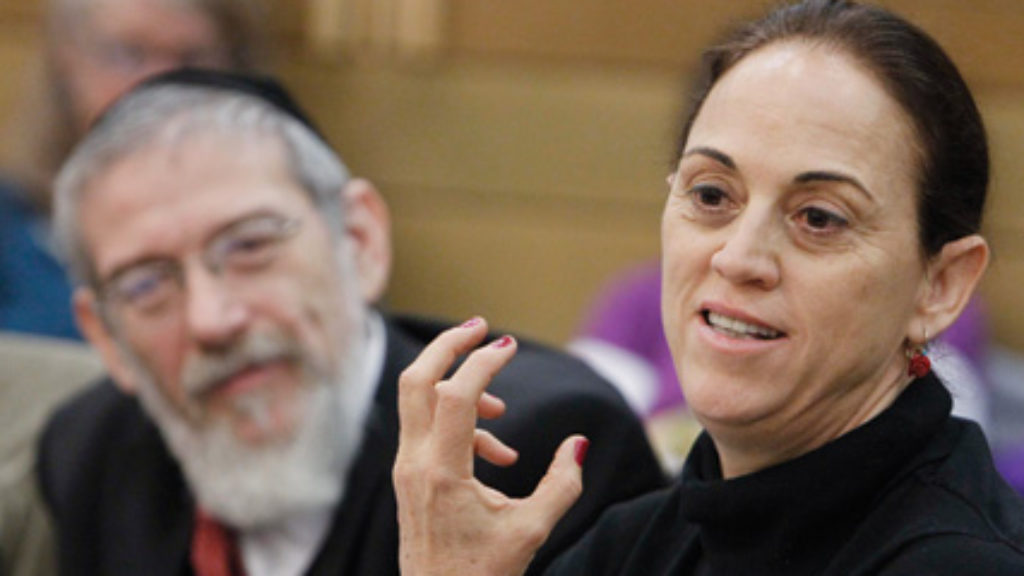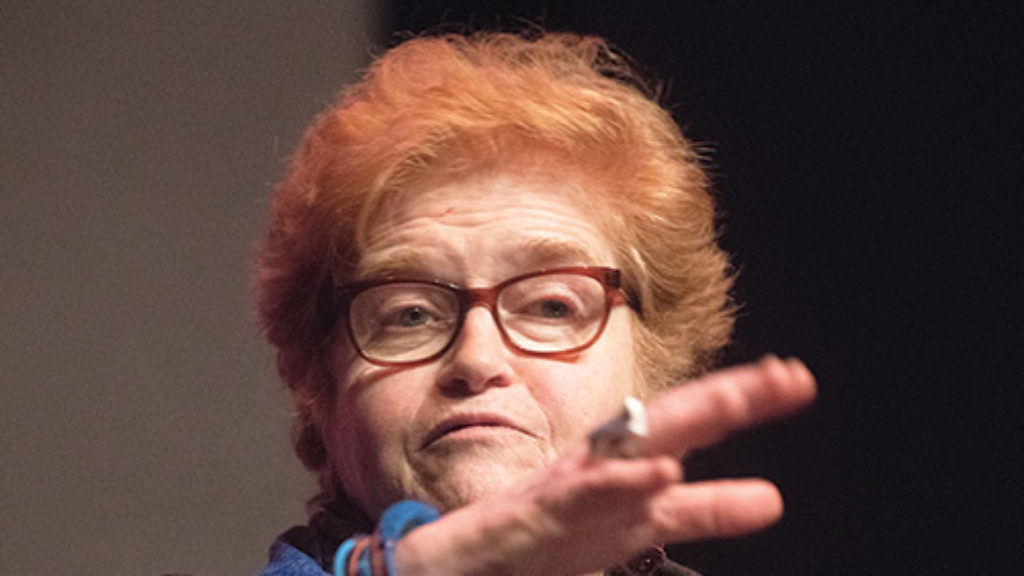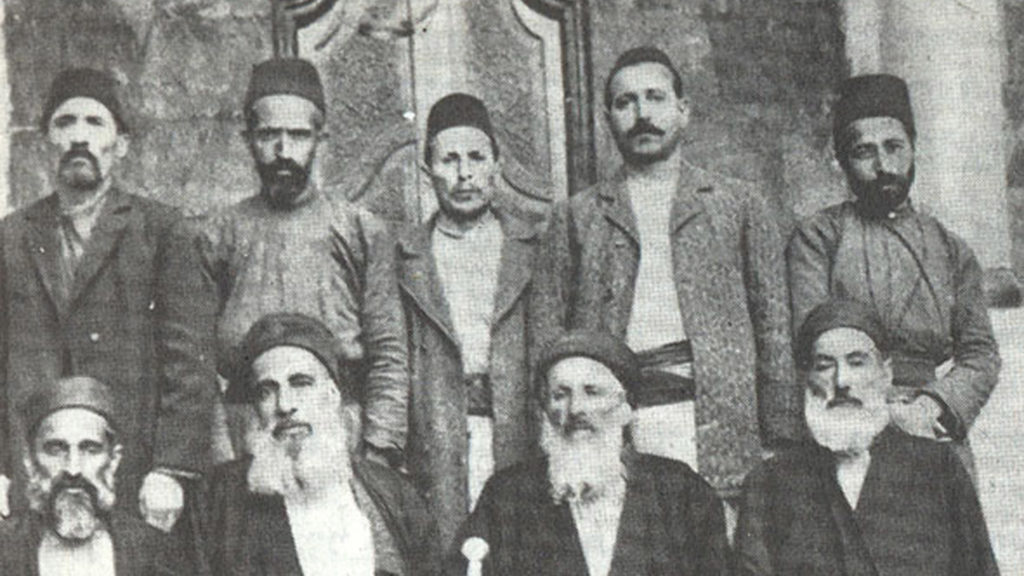More than the Old New Antisemitism
The Winter 2024 issue of the Jewish Review of Books included not one, but two essays on anti-Israelism (the term coined in Jonathan Karp’s trenchant piece). I am grateful—especially since its editor, Abraham Socher, remains skeptical. Antisemitism, he notes, was always plural, a set of ideas, practices, and attitudes that bear what Ludwig Wittgenstein called a family resemblance to each other: “The Pauline contempt . . . the hatred of the High Middle Ages . . . earlier Greco-Roman animus or the later Islamic one. . . .” Socher does not deny, of course, that there is something new out there. The evidence is literally shouting at us in the streets. And yet, he asks, could this new face of hatred not find its place within the same old family?
Wittgenstein taught us how to wonder about words and things. Ian Hacking put Wittgenstein’s skepticism to constructive work in his important discussion of how we “make up people.” Clinical diagnoses such as, say, multiple personality disorder, emerge historically, and as they do, people feel they can use them to understand their own experiences. A looping effect then creates models, institutions, practices, all supporting an entire way of being a human. Words create and delimit things because they are never just words.
As Socher points out, the word “antisemitism” is a recent coinage, introduced by Wilhelm Marr in the nineteenth century. Now, I do not mean to say that people became antisemitic because the word, or “diagnosis,” became available. But the word arose as the hatred was entering a new phase and as it gained startling historical prominence. From Dreyfus to Auschwitz, European history was shaped by antisemitism. Along the way, it reshaped our understanding of the word “antisemitism” itself—an understanding which then becomes entrenched to inform current historical realities: Hacking’s loop. True, there is a family resemblance among the many possible uses of the word “antisemitism.” But the family is organized, now, with what’s technically known as a “focal meaning”. What readily comes to mind as “antisemitism” is, I suggest: the hatred expressed (i) by Europeans towards their (ii) Jewish neighbors, fueled by the combination of (iii) lingering Christian resentment and (iv) nationalist fervor.
The hatred we currently deal with is expressed by people (i) who repudiate Europe and its heritage (for which, as Dreyfus and Auschwitz remind us, there can be excellent reasons), (ii) who direct their animus towards a distant nation, (iii) who are typically secular and (iv) anti-nationalist. Can they be excused for failing to realize that they hate Jews? The focal meaning of “antisemite” points somewhere else: it fits the mob at Charlottesville chanting “Jews will not replace us,” Charlottesville boils down, after all, to Nazi nostalgia. It is this which makes people in the radical left secure in their sense that they are, if anything, the foes of antisemitism. They would gladly march against such Nazi mobs.
This leaves us with an unpleasant conundrum (not an unfamiliar feeling for Jews). A terrible history entrenched the word “antisemitism” and made it powerful. The same history shaped the word in such a way so that the most prominent haters of Jews around us—anti-Israeli leftists—are off the hook.
Both Karp and I point out, first of all, an empirical fact: the inadequacy of the platitude that “it is possible to criticize Israel without being an antisemite.” Indeed, what is remarkable is the failure of leftist activists to rationally criticize Israel—there’s ample material for that!—they demonize it. Consequently, liberals such as Karp and myself find ourselves, much to our surprise, rushing to its defense.
This empirical observation invites an analytical response. Why this hatred? On this, Karp and I seem to differ. I believe Karp sees anti-Israelism as a transformation of historical antisemitism. I see a more fundamental discontinuity. The contrast with right-wing antisemitism is telling. The right, much more than the left, does reach back to the tropes of prototypical modern European antisemitism: the Jewish conspiracy; the banks; an anti-nation. Leftist activists rely, instead, on more generalized anti-colonial tirades, from which they distill a virulent extract with which to tar Israel. After all, the old antisemitism, particularly in the United States, really did go into abeyance. One must make an extra effort to learn the tropes of classical antisemitism—which are now mostly repeated by imbeciles who trawl the internet for Nazi memes. But the progressive youth who now chant against Israel, and sometimes their fellow Jews, on campus have few resources to draw upon as they tiptoe into antisemitism. In their rush to come up with this something new, they have landed on the oldest hate.
The thread linking the old hate of the Jews and the new hate of Israel is the Jews. Jews are weird. As we tried to make ourselves normal—by returning to our land—we have created yet a new twist in the tale of our weirdness. The new state was weirdly formed in the worst possible way. It is simultaneously a settler state and an indigenous state. Rare are the nations that belong so authentically in their place, with such a depth of cultural meaning, as the Jews do in Israel. And yet, the Jewish presence in Palestine was made, in recent times, by people migrating and settling there, many of them from Europe. This incongruous combination—an indigenous state and a settler state—is especially galling to those who wish to extirpate European power and return the rest of the world to its rightful non-European owners. Hence the hatred of Israel.
Which comes nowhere near solving our conundrum. Should we call the haters of Israel “antisemites”? “Anti-Israelis”? Does it even matter? The way out of the conundrum is not some miracle cure of talking points that will open the eyes of our haters. We must dig deeper than that. The simplistic ideologies of the radical left have various sources, but they all go back to theories and narratives provided by scholars in the humanities. We constructed them and now we must, if you will, deconstruct them. I am confident that many of my colleagues will return to their power-points, remove all the gratuitous lip-service paid to recent ideological shibboleths and return to genuine progressive humanism. I know I have.
Comments
You must log in to comment Log In
Suggested Reading

Denial and the Defense of Truth
Denial is more than a slick courtroom drama about Holocaust denial; it is also a defense of objective truth against nihilistic relativism, a call to arms by the establishment against self-proclaimed outsiders who deny all sorts of truths.

Something Was Missing
When it was time for new MK Ruth Calderon to speak to Knesset for the first time, she told a Talmudic story and created a YouTube sensation. Her book has now been translated.

The Fire Now
"As horrific as the Holocaust was, it is firmly in the past. . . . Though I remain horrified by what happened, it is history. Contemporary antisemitism is not. It is about the present. It is what many people are doing, saying, and facing now," writes Deborah Lipstadt in her latest book.

That in Aleppo Once
Does the most accurate biblical text belong in the synagogue, or in a museum?
Marsha
We were not settlers! The vast majority of us were not simply migrating and settling. We were refugees returning to our indigenous homeland. And if we can't get this straight, then no one can.
David Z
For those of us Jews with a traditional bent, I think the reason we see antisemitism is because although it is a recent coinage for non Jews, it is really just a summation of esav sone l'yaakov (Esau hates Jacob) which has been used by Jews from the time of Egypt to today to exclaim the wonderful diversity of antisemitism. On the other hand, perhaps the diversity is as a result of us surviving so long as a people. Anybody else would've disappeared after the first volley of hatred and conquest.
I understand our traditional theological explanation with Israel as a nation of priests and a gadfly to the world reminiscent of Socrates isn't compelling to non believers but it is what helps us make sense of the sheer diversity of hate. And anti Israelism is certainly contained within that family under traditional Jewish understanding.
They don't hate Israeli Druze or Israeli Christians or Israeli Bahai or Bedouin or Circassians (recent settlers the lot) or even Samaritans. Even if they serve in the IDF. They hate Israeli Jews. No matter how long their ancestors have lived there.
And separating Jews who have as an entire people prayed for return to their Homeland due 2,000 years (with a few exceptions like Spinoza) from Israel. And I cannot think of another word than antisemitism to force or pressure Jews to renounce their Homeland and indigeniety to remain in gentile good graces. They would never do it to the Hopi the Lakota or the Navajo no matter how far off Rez they live. So I think I'll stick with good old antisemitism even if I may run afoul of Wittgenstein.